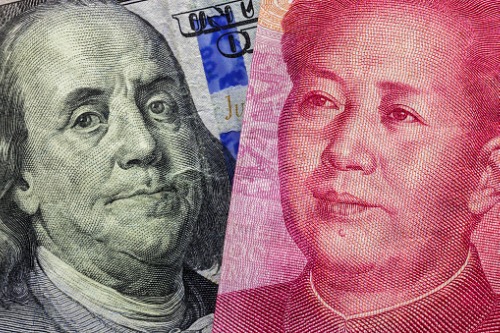Portfolio manager says aligning a portfolio based on values no longer means sacrificing returns

Just when you thought the strained China-US relationship couldn’t get much worse, an NBA GM lit the Twitter touch paper.
Just over a month ago, Daryl Morey, of the Houston Rockets, tweeted support for anti-China protests in Hong Kong. China took umbrage and hit back. In the days that followed, Chinese leagues, streaming services, sponsors and partners cut ties with the Rockets and the NBA.
It was headline news and, for many, highlighted the oppressive and undemocratic nature of the Chinese regime.
For portfolio manager Grant White, of Endeavour Wealth, IA Securities, it raised interesting ESG issues. Suddenly, some clients were questioning why Chinese companies were in their portfolio when it didn’t align with their own values. Climate change is another global issue currently in the news, and people also wanted their capital to reflect their stance on environmental issues.
White said these types of conversations are happening more and more with clients and, while he told WP it was always inadvertently part of his investment process, he is definitely emphasising ESG issues to clients more and more.
Both news stories, he believes, have brought to the forefront issues that clients are passionate about.
He said: “Everybody has their own system of values, and we need to respect that as advisors. I’m personally OK with [Chinese company] Tencent as a firm and I invest in it personally but, granted, there are going to be some of my clients who don't want to invest in Chinese companies right now for whatever reason.
“The conversation essentially goes, OK, I can understand that, let’s find another company that will fit the criteria we're looking for, but also is in alignment with your values.”
Fundamentally, having a portfolio the client doesn't believe in is not good for the relationship and is likely to create a rift. Giving advice, insisted White, does not mean dictating to someone about what they should be doing all the time.
There is a shift in thinking under way right now, though, that is making it easier for portfolio managers to position investments in-tune with the ESG values of their clients. This stems from a growing conviction that ESG-aligned portfolios do not automatically mean a drop in returns. In fact, it can enhance them.
For the Winnipeg-based advisor, consumer-driven decisions are a major catalyst for this change. “Make no mistake,” he said, “price still makes a big difference and is probably the biggest factor in a lot of these decisions.
“But if you're looking at Crest versus Colgate as an example, and one of them was acting more ethically in the community than the other, I think people would opt for the one that's acting more ethically.
“We even see that with Canadian banks, where investors are going to choose to invest in a bank that aligns more with their own ethics. That's why the banks are spending a lot of time focusing on community initiatives.”
JUST Capital, an independent company in the US, ranks firms on how well they compare with what people think is just and ethical. Its top-100 prove that firms scoring high on this front are outperforming companies outside the top 100.
White said: “What's actually shifted here is that you don't have to give up returns; you can have all of it now. And not only are people investing with their values, but it’s also driving their consumer decisions as well, which is adding to the profitability of these companies.”



